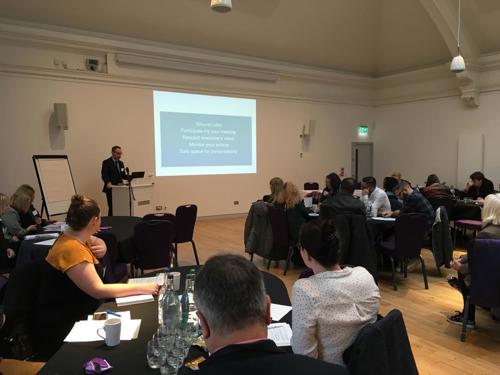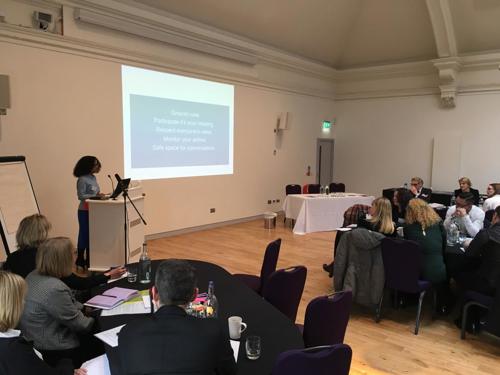Human Rights, Equalities and Mental Health
Posted by See Me, 4 December 2018
Stigma means that while people affected by mental health issues have the same rights as other members of society they often face significant barriers in realising them.

Last week See Me hosted quite a small focused seminar to bring together a variety of national partners and people interested in pursuing a human rights and equality agendas from a mental health perspective. See Me, VOX and SRN had previously worked with a large number of people with experience of mental health problems to produce Rights for Life – a declaration of human rights from a mental health perspective. See Me has gone on to develop the ‘Community Conversations’ pilot designed to give people an understanding of their rights and how to realise them. However what we’ve struggled with – and it seems others have too – is how to make human rights language accessible to all and how to enable action to uphold rights. In other words to get the “duty bearers,” the public bodies that are required by law to uphold our rights, to take action. So with this event we aimed to push forward collaborative action as part of Scottish Government’s mental health strategy
A variety of organisations, See Me’s volunteers and Mental Welfare Commission members took part – all of us focused on what we need to do now. It may have been more talking but it was focused on how we can take action. A number of things struck me. Firstly we’re all a bit frustrated – it seems hard to move this agenda forward. And yet we’re all determined to. We talked about how we need to communicate human rights in a way that doesn’t ‘put people off’. For most people, human rights language is exclusive. For public services human rights can seem like a threat. It doesn’t have to be either of these. We talked about the, at times, unhelpful competitive relationship between human rights and equalities, and how we could use the human rights principles to deliver on the equality duties.
There were some really good conversations and suggestions about how we can make human rights accessible and useful. For public services in particular a human rights based approach could help meet policies they are already responsible for delivering. For example I often talk about person centred approaches – treating us all as ‘whole’ people with mental and physical health. What are human rights other than treating us with dignity as human beings and empowering each of us to influence the decisions that affect us?
We heard what happens when we aren’t treated with dignity; dismissed or not taken seriously. At See Me we hear about these types of infringements every day and although not as high profile as restraint or detention the commonplace nature of discrimination relating to mental health is unacceptable. This seminar highlighted that we can all act to introduce small scale changes around rights based approaches, but in order to achieve large scale change Governments, public services and committed programmes like See Me need to do things differently.
And so one of the things I committed See Me to do is to find others we can work with to demonstrate what a human rights based approach looks like in practice. In the jargon –“tests of change”. It strikes me that that’s the best way – show don’t tell. But we can’t do it alone. All of those focused on taking action realise that collaboration is necessary now. We’re up for it but we need our colleagues in public services to join us and make some progress.

